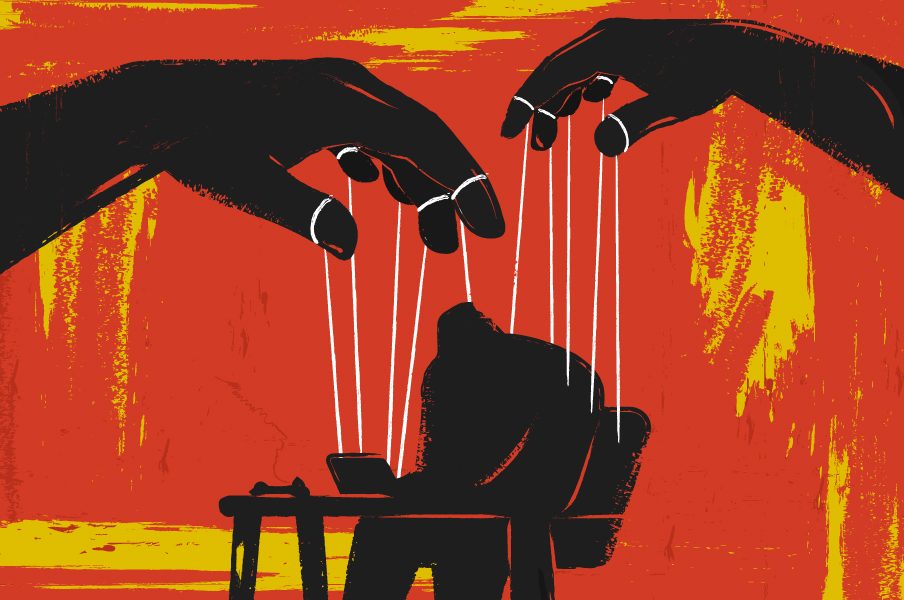Information from the original article Disinformation For Hire: How A New Breed Of PR Firms Is Selling Lies Online by Craig Silverman, Jane Lytvynenko and William Kung.
Peng slid out his mobile device as if to prove himself as the king of online manipulation. He was ecstatic with a wild grin. Using bots to spam social media with fake news had become his superpower, and he was not ashamed to use misrepresentation to improve his clients’ reputation.
In the 21st century marketplace, independent online reviews have become a critical factor in a customer’s decision-making process. Potential customers want to read what previous customers have to say about a business. The good, the bad, and the ugly truths. It caused a paradigm shift in the industry, causing companies to focus more on service and professionalism as they strive to please their customers.
With manipulators like Peng Kuna Chin, some businesses no longer put in the effort to satisfy their customers. On the contrary, they create a budget to hire a PR firm tasked with maintaining their reputation online and offline.
Aside from businesses, people of influence, such as politicians and political parties, also take advantage of similar systems. In 2017, Facebook admitted that “Dark-PR” firms had misinformed more than 126 million Americans in Russia and Macedonia in a disruption campaign leading to the 2016 elections.
In December 2020, Twitter reported it had deactivated over 5000 accounts owned by the new breed of PR firms, specializing in spreading misinformation. According to Twitter, these accounts were involved in “a significant state-backed information operation, amplifying messages favourable to Saudi authorities and advancing geopolitical interests.” Smart spearheaded the operation, a social media marketing and management company.
Dark PR services have become a global epidemic. With the implementation of artificial intelligence and automation, PR firms who spread disinformation worldwide can take up as many clients and do so much harm with just the push of a button.
According to a detailed interview with an investigated reporter in Taipei, Peng confirmed that he had modelled his automation system to function like one he had previously seen in China. He admits that while his software may be unique, the idea behind Dark PR is not new in the influencer industry. Many PR firms will market a person or brand for the right price, using content farms and pseudo websites to change the actual narrative.
One such firm is the Archimedes Group, an Israeli-based firm that has been actively involved in various social media campaigns since 2017. In 2019, the group was banned by the largest social network giant, Facebook, over “coordinated inauthentic behaviour.” According to Graham Brookie, a Digital Forensic Director who collaborated with Facebook during the investigation, “The Archimedes Group is a real communications firm making money through the dissemination of fake news.” By the time they were stopped, Archimedes had sponsored fake ads with over $1.1 million and had influenced elections in Nigeria, Angola, Niger, Tunisia, Senegal, and Togo.
In Nigeria, a country with about 200 million people, the group created campaigns in favour of and against a candidate and former vice-president, Atiku Abubakar, in the 2019 general elections. According to experts, the groups designed to endorse Atiku Abubakar were used as a trap to identify his supporters. The Israeli firm then went ahead to create fake Facebook profiles, add these supporters as friends, and swamped their pro-Atiku posts with arguments and debates while also getting thousands of likes from other counterfeit profiles to deceive unsuspecting readers.
Puerto Rico is not left out of the picture. In 2019, former governor Ricardo Rossello resigned after leaked chats surfaced worldwide, showing he adopted the Dark PR technique to spread fake news. Ricardo, who was the admin of a telegram group, had been communicating with a dark PR firm, KOI, with plans to attack members of the opposition and increase engagement on pro-government contents.
In Poland, one of the most notorious marketing companies, Cat@Net, cut down staffing costs by hiring only people with disabilities who were desperate and needed a job they could do from home. These disabled people were paid poorly below the national minimum wage. However, they seemed to prefer being paid peanuts against nothing due to their disability being a significant disadvantage against them in the labour market. Cat@Net was notorious for managing Twitter accounts and influencing trends to suit their sponsor’s narrative.
With creators like Peng taking advantage of automation, firms like Cat@Net take advantage of disabled people for manual labour on numerous platforms. Security firms are forced to increase their budget as they try to sort out legitimate opinions from fraudulent fake-news-for-hire firms. Even Facebook’s head of cybersecurity policy, Nathaniel Gleicher, admitted to a BuzzFeed reporter that “the professionalization of deception” has become a growing threat. Sadly, in most cases, these spam accounts can only be identified after some level of damage has been done.
The rise of unprofessional PR firms using bots for spamming social media to spread fake news has become an industry-wide problem. The PR community has repeatedly taken a stand against its members who were convicted of using social media as a tool for manipulation. The chief communications officer for Weber Shandwick, a notable PR giant, Jill Tannenbaum, enjoined PR firms to always stand on the side of truth and transparency, even when competing in a dishonest market. According to Jill, “We have a process in place to assess any client engagements that might not adhere to our values or include tactics that are not truthful or transparent so that we can counsel our teams and our clients accordingly.”
As the industry does its best to identify and punish PR firms who refuse to adhere to the ethical parameters that govern PRs, experts believe it may be a tough nut to crack because of how rewarding the business of fake news is. Most of the companies who spread fake news are paid handsomely, giving them an incentive to act without integrity.
According to an agency director who asked not to be named, “We have had several campaigns where we were up against other firms that were willing to employ any tactic to combat whatever we were putting out there if we were promoting a candidate and they were promoting an opposing candidate, for instance.” Customers most often always want the job done and are always willing to hire the company that promises to deliver, irrespective of the tactics adopted.
Like what we have to say? Sign up to subscribe to email alerts and you’ll never miss a post.










